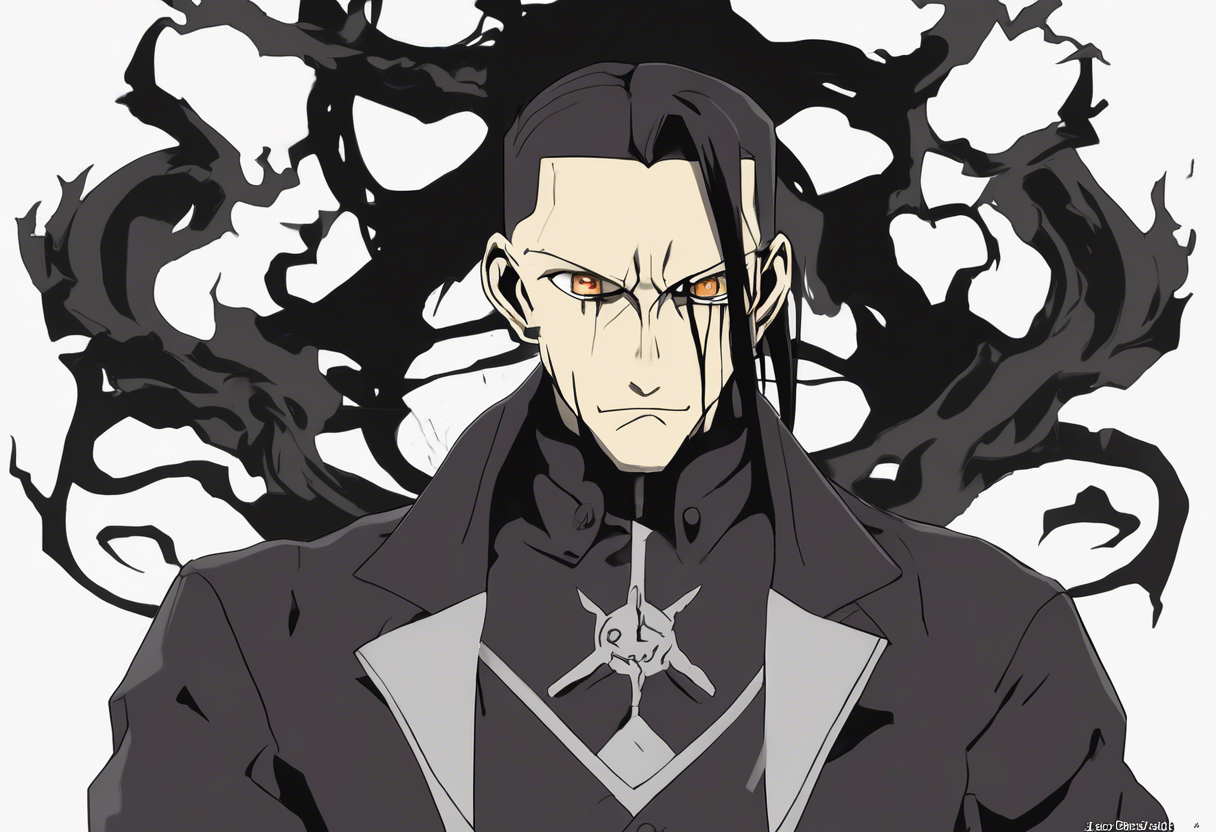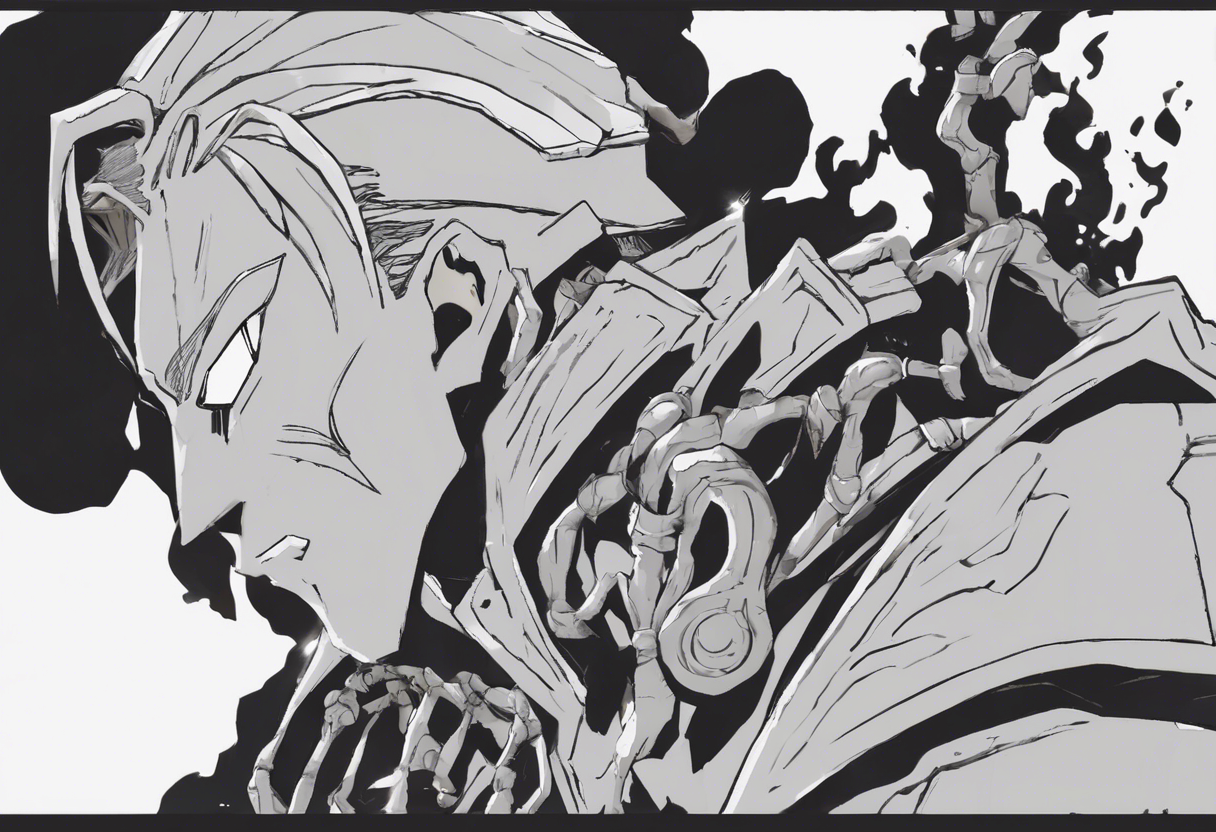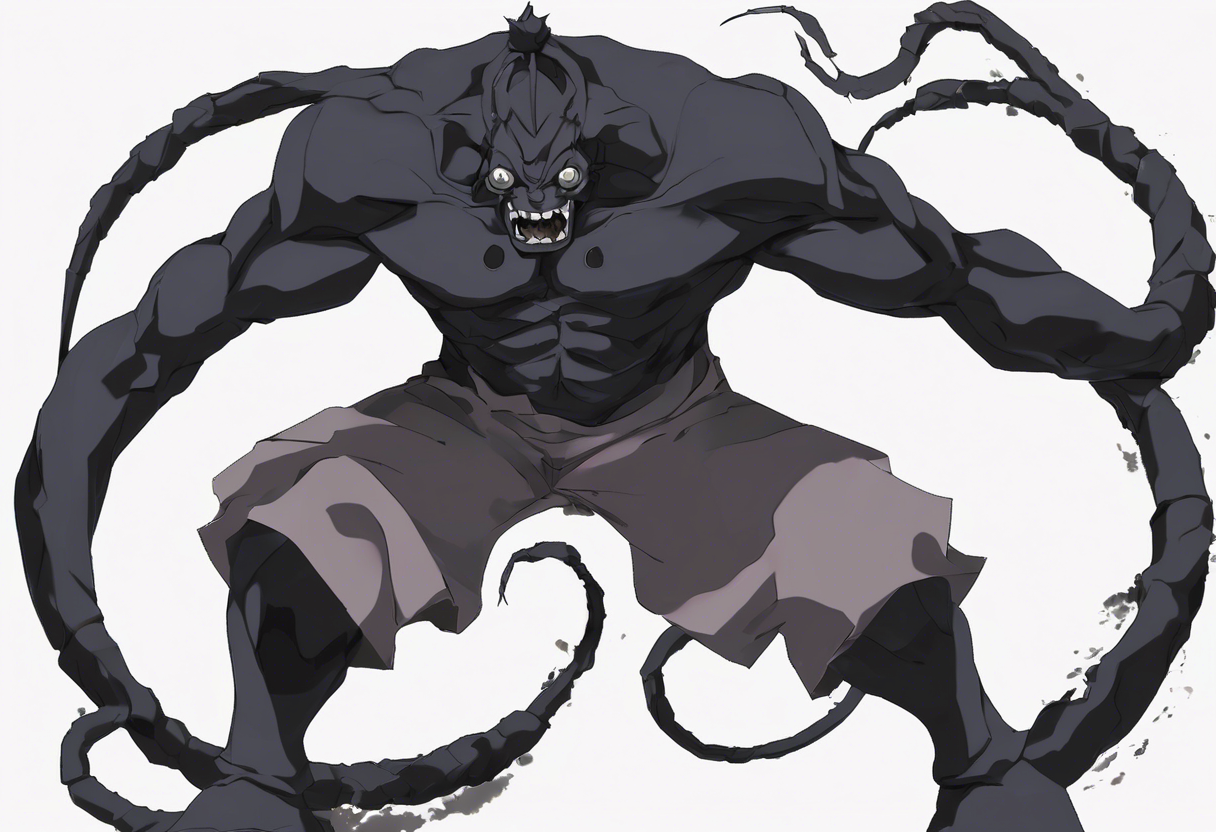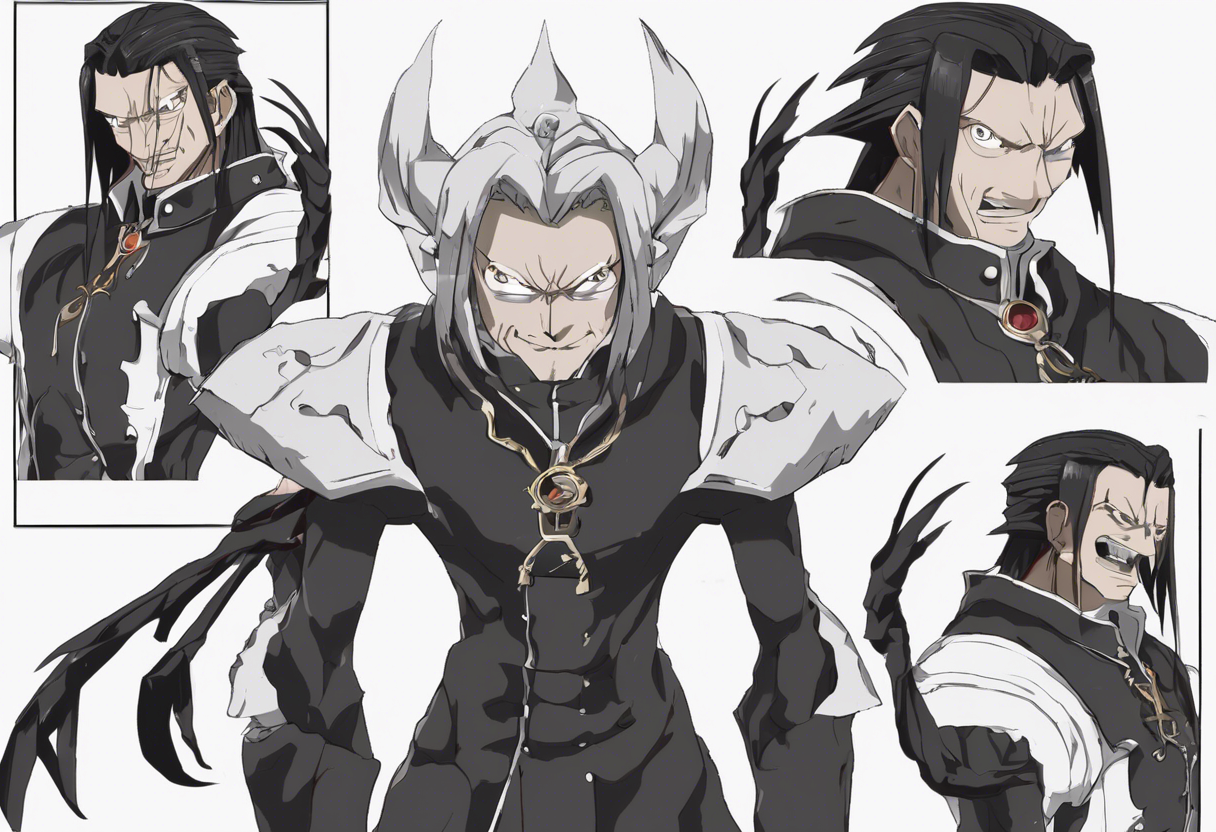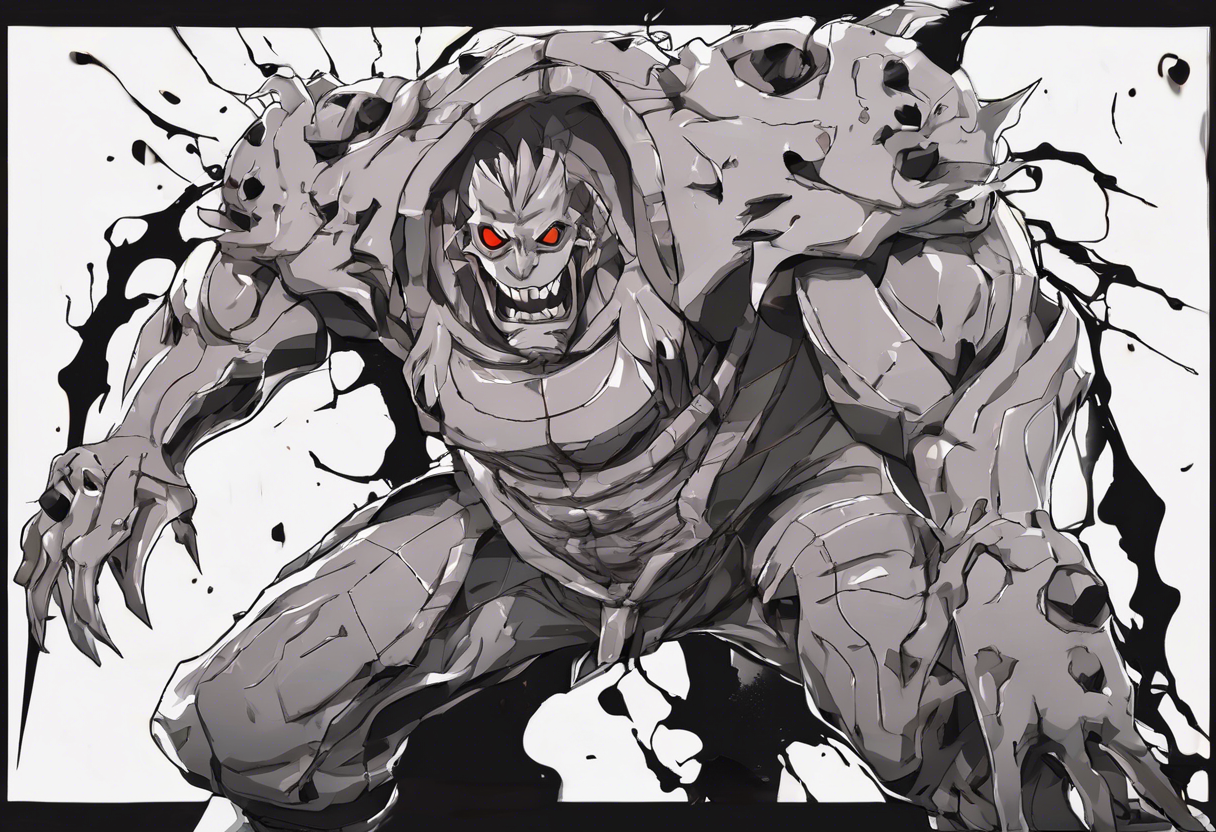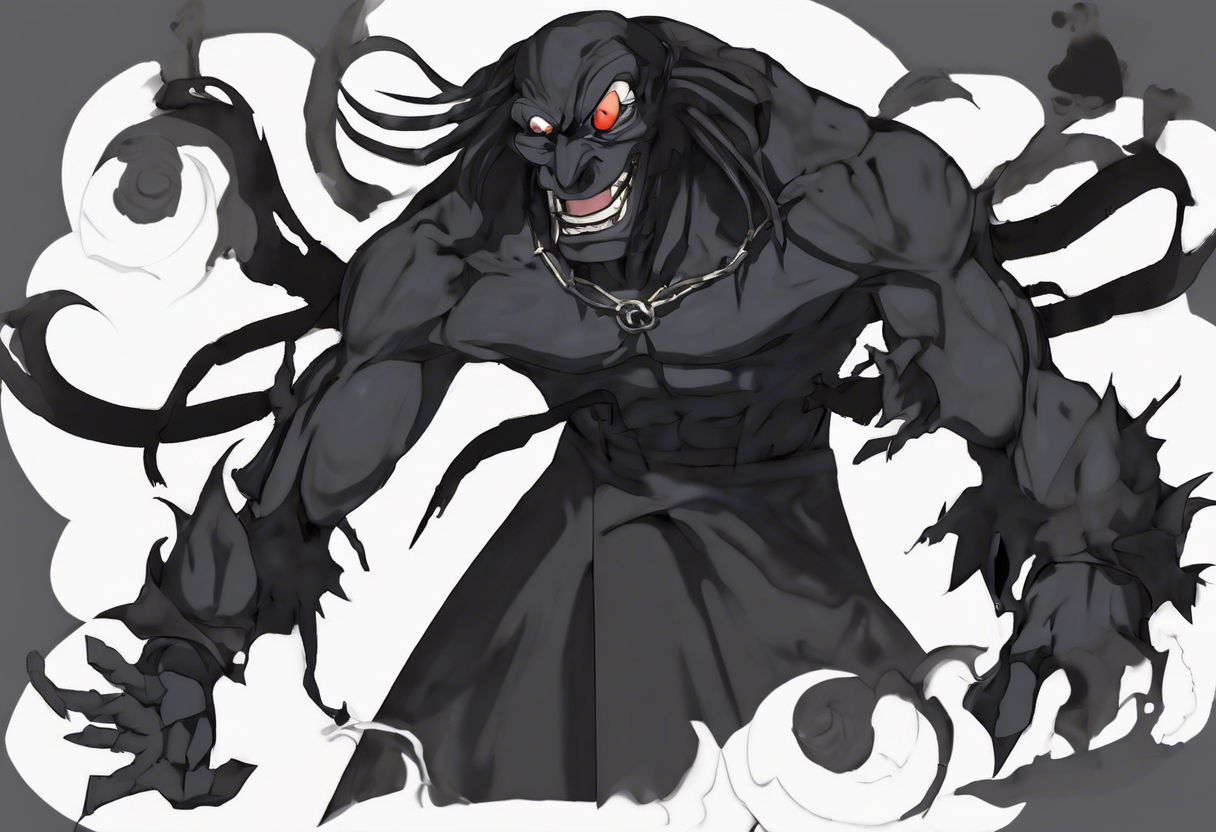Contents
Pride from Fullmetal Alchemist: Brotherhood
Introduction
Pride, one of the seven Homunculi in the anime series Fullmetal Alchemist: Brotherhood, is a complex and formidable character created by the series’ author, Hiromu Arakawa. He is the first Homunculus brought into existence by Father, the primary antagonist of the series, and embodies the sin of pride and self-importance. Pride’s creation dates back over 300 years, making him the oldest of the Homunculi, yet he appears as the youngest due to his child-like form as Selim Bradley.
Pride’s significance in the narrative is multifaceted. He serves as the second-in-command of the Homunculi, overseeing Central City and keeping a watchful eye on the other Homunculi. His true form is a shadowy mass of eyes and mouths, reflecting Father’s original form, the Dwarf in the Flask. This connection underscores Pride’s role as a mirror to Father’s proud and superior nature[1][2].
Role in the Story
Pride’s storyline is intricately woven into the fabric of Fullmetal Alchemist: Brotherhood. Initially, he is introduced under the guise of Selim Bradley, the adopted son of King Bradley (who is actually the Homunculus Wrath). This disguise allows Pride to blend seamlessly into the royal family and gather intelligence without arousing suspicion. His charming and enthusiastic demeanor as Selim Bradley fools even the main characters, adding a layer of complexity to his character[1][2].
As the story progresses, Pride’s true nature is gradually revealed. He is involved in several key events, including the confrontation with the Elric brothers and their allies. Pride’s abilities, such as his shadow manipulation and absorption of others’ powers, make him a formidable opponent. Notably, he devours Gluttony to absorb his sense of smell and later assimilates Solf J. Kimblee to gain the ability to create transmutation circles[1][3].
Pride plays a crucial role in Father’s plan, overseeing the sacrifice of the chosen five individuals needed for Father’s ritual. His final confrontation with Edward Elric is pivotal, as it reveals the depths of Pride’s arrogance and his eventual downfall. Despite his confident and superior attitude, Pride is defeated by Edward, who converts himself into a human Philosopher’s Stone to fight Pride’s soul directly. This defeat leads to Pride’s rebirth as a younger Selim Bradley, devoid of his past memories[1][2].
Character Analysis
Pride’s personality is a blend of arrogance, superiority, and a deep-seated insecurity. As the embodiment of pride, he views humans as inferior and often treats them with contempt. However, this arrogance is also his greatest weakness, as it leads him to underestimate his opponents and lower his guard, resulting in several defeats[1][3].
Despite his cold exterior, Pride has a complex emotional landscape. His affection for the Bradley family, particularly his adoptive mother, Mrs. Bradley, is genuine. This contrast between his true nature and his adoptive persona adds depth to his character, making him more relatable and human[3].
Pride’s abilities and strengths are rooted in his shadow manipulation and his capacity to absorb and utilize the powers of others. However, his reliance on light sources to maintain his form and fight effectively is a significant vulnerability. This dependency highlights the balance between his formidable powers and his limitations[1][2].
Themes and Symbolism
Pride embodies several key themes in Fullmetal Alchemist: Brotherhood. The most obvious is the concept of pride itself, which is explored through his character. Pride’s arrogance and superiority complex serve as a critique of the dangers of unchecked ego and the dehumanizing effects of viewing others as inferior.
Pride also symbolizes the theme of identity and the blurred lines between appearance and reality. His dual identity as Selim Bradley and Pride the Homunculus underscores the complexity of self and the ease with which appearances can be manipulated. This theme is further reinforced by his true form, which is a shadowy, amorphous mass, contrasting sharply with his child-like appearance as Selim[1][2].
Additionally, Pride’s character touches on the theme of family and belonging. His attachment to the Bradley family, despite being a Homunculus, highlights the human desire for connection and acceptance. This aspect of his character adds a layer of emotional depth to the narrative[3].
Cultural Impact
Pride has had a significant cultural impact since his introduction in Fullmetal Alchemist: Brotherhood. Fans of the series have been drawn to his complex and multifaceted character, appreciating both his formidable abilities and his emotional vulnerabilities. His character has been the subject of numerous fan art, cosplay, and fan fiction, reflecting his enduring appeal.
In adaptations and spin-offs, Pride’s character has been consistently portrayed with fidelity to the original manga and anime. His presence in video games, such as the Fullmetal Alchemist video game series, and in other media has further solidified his place in popular culture.
Pride’s influence extends beyond the Fullmetal Alchemist franchise, inspiring other characters in anime and manga that embody similar traits of arrogance and complexity. His character archetype has become a benchmark for villains who are both powerful and emotionally nuanced[3].
Critical Reception
Critics and audiences have praised Pride for his complexity and depth. His character is often cited as one of the most compelling aspects of Fullmetal Alchemist: Brotherhood, with many appreciating the layers of his personality and the moral ambiguities he presents.
Some critics have noted that Pride’s arrogance and underestimation of his opponents make him a more human and relatable character, despite being a Homunculus. His interactions with other characters, particularly the Elric brothers, are highlighted as some of the most engaging and emotionally charged moments in the series[1][3].
However, there have also been discussions about the potential flaws in Pride’s character, such as his sometimes predictable behavior and the consequences of his arrogance. These critiques, however, do not diminish the overall impact and appeal of his character.
Legacy
Pride’s legacy in the world of anime and manga is profound. He remains one of the most memorable and complex villains in recent anime history, influencing character design and storytelling in numerous other series.
His enduring appeal lies in his multifaceted personality, which combines arrogance with vulnerability, and his symbolic representation of themes such as identity, family, and the dangers of unchecked pride. Pride continues to be a subject of discussion and analysis among fans and critics alike, ensuring his relevance in contemporary discussions about character development and storytelling.
In conclusion, Pride from Fullmetal Alchemist: Brotherhood is a character whose impact extends far beyond the series itself. His complexity, depth, and the themes he embodies make him a compelling and enduring figure in the world of anime and manga.
References
- https://www.cbr.com/fullmetal-alchemist-pride-homunculus/
- https://aminoapps.com/c/virtual-space/page/item/pride/GNIV_IJPP7pX72W4QvQv5GJbq3MZDD
- https://www.cbr.com/fullmetal-alchemist-pride-homunculous-facts-trivia/
- https://www.cbr.com/fullmetal-alchemist-brotherhood-difference-explained/
- https://www.youtube.com/watch?v=eHzRUSwz0g8

